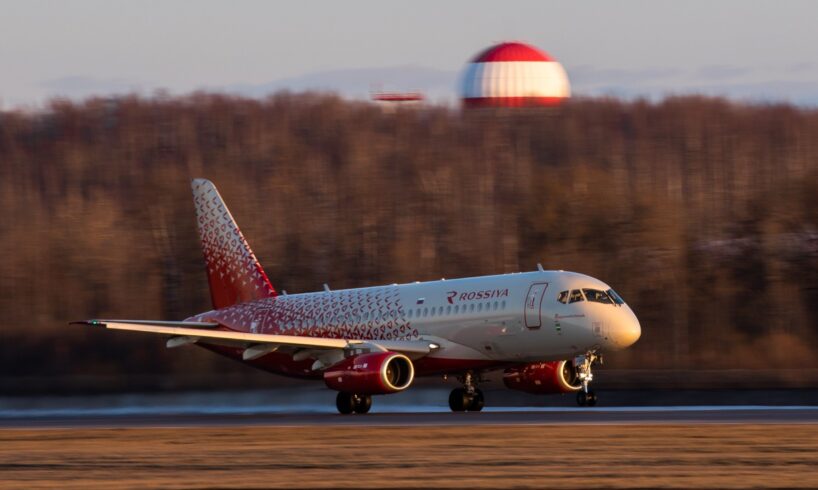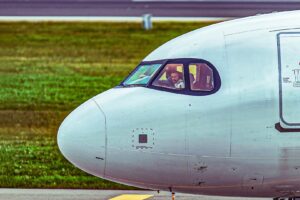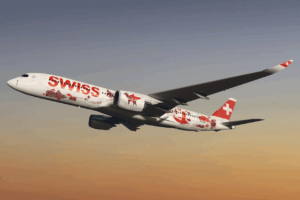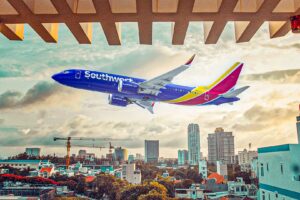
Fuselage defects have been identified in several Sukhoi Superjet 100 regional airliners that are currently being used to operate domestic commercial passenger services in Russia. The news comes as a further blow to the beleaguered aircraft, which already has a somewhat checkered safety record after several accidents.
In recent years, the commercial aviation sector in Russia has been hampered by sanctions that have prevented the country’s airlines from being able to acquire spare parts for Western-built airliners such as those made by companies like Airbus and Boeing. As such, the nation has become reliant on domestic aircraft, but, as the Sukhoi Superjet’s recent issues illustrate, these aren’t an optimum solution.
14 Airliners Have Flawed Fuselages
Photo: Alexandr Zimovskoy | Shutterstock
According to The Moscow Times, multiple Russian domestic airlines have been informed by aircraft manufacturer Yakovlev and the Russian civil aviation authority Rosaviatsia that fuselage flaws have been found on their Sukhoi Superjet 100 regional planes. At least 14 are impacted, with the serial numbers 95104-117.
Yakovlev reportedly first notified Rosaviatsia, which is also known as the Federal Air Transport Agency, back in May of this year, with the Russian aviation regulator subsequently issuing a directive to the impacted airlines at the start of August. According to Oreanda, Rossiya had to perform one inspection. The carrier said:
“The airline necessarily performs all the necessary checks prescribed by the airworthiness directives. Directive 2025-FATA-01020A-08, issued by the Federal Air Transport Agency on August 1, 2025, covers only one aircraft in the airline’s fleet. No comments were revealed during the inspection.”
Multiple Operators Are Affected
Photo: Alexandr Zimovskoy | Shutterstock
Away from Rossiya Airlines, which operates at least one Sukhoi Superjet 100 with the aforementioned fuselage flaws, impacted carriers also include Azimuth and Yamal. These airlines respectively have one and five affected examples of the aircraft at their disposal, with the remainder currently being in storage.
The crux of the matter appears to be the aircraft’s stringers. These, as The Moscow Times explains, are structural elements that serve the purpose of reinforcing the plane’s fuselage. However, it has been found that, on the impacted aircraft, these components between the cockpit and passenger door are not securely fastened.
The airlines directed to inspect the impacted aircraft seem to have a complicated job on their hands. Indeed, The Moscow Times notes that the inspection work will require operators to dismantle the planes’ thermal and acoustic insulation, as well as their door frame skin and lavatory module. This highlights the maintenance strain placed on Russian airlines as they fly domestic aircraft amid Western sanctions.
The Latest Black Mark Against The Superjet’s Checkered Safety Record
Photo: Katsuhiko Tokunaga | Wikimedia Commons
The recent issues highlighted with the Sukhoi Superjet 100 have not caused any operational problems and look like they will require minimal action from the airlines operating the impacted aircraft. However, they do tell an all too familiar tale as far as the plane’s reputation is concerned. Indeed, it has a checkered safety record, with AeroTime noting that it has been involved in 95 incidents in 12 years.
Sukhoi Superjet 100 Fleet In August 2025 (Per ch-aviation)
Active
Inactive
On Order
76
21
28
Of these, five resulted in total hull losses, with 89 fatalities spread across three fatal accidents involving the Russian regional jet. Still, as Russia’s commercial aviation sector looks to become more self-sufficient in the face of sanctions imposed on the country by Western nations following its invasion of Ukraine in 2022, it is pushing forward with the development of a new ‘Russified’ Superjet.
This will be known as the Yakovlev SJ-100 NEW, with fleet data made available by ch-aviation showing that, collectively, Aeroflot, Aurora, and Rossiya Airlines have placed more than 100 orders for this updated model. As far as existing Superjets are concerned, Cirium, an aviation analytics company, shows that its operators have scheduled 14,286 flights and 1.34 million seats with the type this month.






